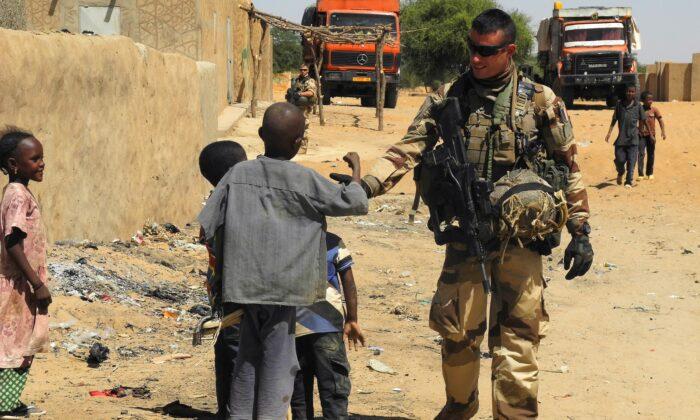Russia Deploys Troops to Conflict-Stricken Sahel Region in Africa, Prompting US Concern
Moscow is increasing its military presence in the troubled Sahel region of Africa, while pressure mounts on the US to withdraw its troops.
Instructors from Russia’s Africa Corps, successors to the Wagner Group, have recently arrived in Niger with air defense systems and other weapons, according to security analysts at The Epoch Times.
These troops are the latest to enter the conflict-ridden Sahel desert region, where jihadists are engaged in combat with government forces from various West African countries including Burkina Faso, Mali, and Niger.
Coups led by senior army officers in these nations have expelled French troops who were actively fighting terrorist organizations like al-Qaeda and ISIS.
“The West should be deeply concerned about the situation in the Sahel,” said Dean Wingrin, a military analyst at DefenceWeb in Johannesburg.
He explained, “Russia is tightening its grip on this strategically vital region, which could serve as a launching pad for actions into other parts of Africa and beyond. The US stands to lose significantly in this scenario as China will likely follow Russia to gain more influence in West and North Africa.”
The United Nations notes that the Sahel region has one of the youngest populations globally, with nearly 65 percent of people under 25 years old.
Investments in education, training, and renewable energy could lead to significant benefits for the Sahel region.
Russia’s Africa Corps currently controls oil fields in Libya and mineral mines in Central Africa.
Both West and Central Africa are witnessing ongoing conflicts and jihadist uprisings.
Russia’s move into the Sahel region mirrors its strategy in other conflict zones, with a focus on gaining access to valuable resources.
Moscow deployed 100 Africa Corps troops to Burkina Faso in January.

The Africa Corps announced on Telegram that their troops were in Burkina Faso to protect the country’s leader and its people.
African Initiative, a Russian news agency, stated that the troops would provide training and security assistance in Burkina Faso.
Additionally, Russian military equipment and instructors arrived in Niger to set up an air defense system and train local soldiers.
Russian President Putin and the leader of Niger’s military government discussed security cooperation in late March.
Meanwhile, the US has built installations in northern Niger and had troops in the country, but their operations ceased after a coup.
The potential complete withdrawal of US troops from Niger could pave the way for Russia and China to increase their presence in the region.
Experts warn that the loss of US drone bases in Niger could limit America’s ability to combat terrorism effectively in the region.
As Russia and China expand their influence in Africa, the US faces challenges in maintaining strategic military footholds in the region.
Russia’s entry into the Sahel region highlights the shifting geopolitical landscape and the growing competition for resources and power in Africa.
Military governments in the Sahel are taking anti-Western measures, expelling foreign diplomats and signaling a shift towards new alliances.
The situation in the Sahel region is evolving rapidly, with the involvement of global powers reshaping the geopolitical dynamics of Africa.




